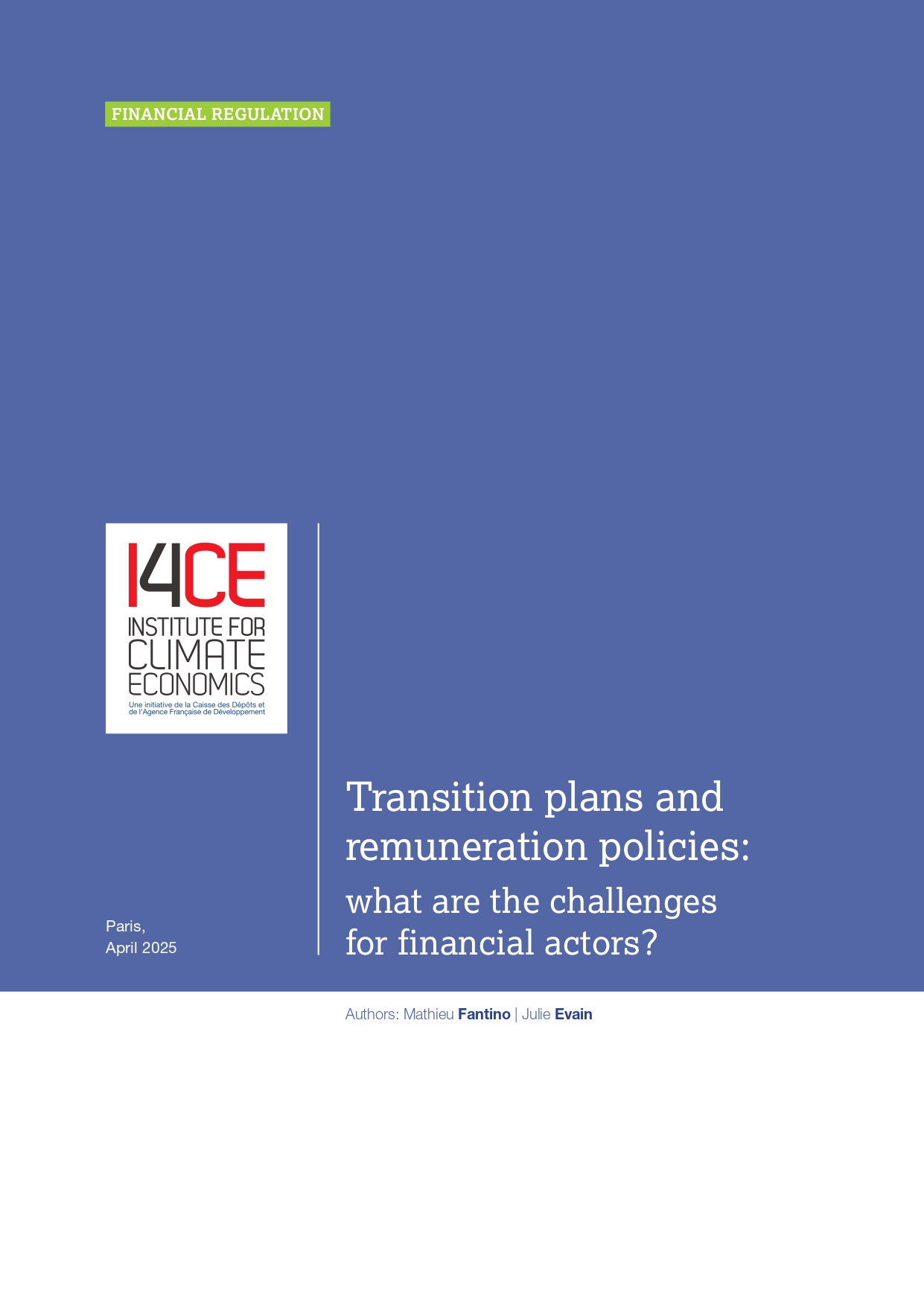Transition plans and remuneration policies: what are the challenges for financial actors?
Integrating climate indicators into variable remuneration is a burning issue. Although it was removed at the last minute from negotiations on the Corporate Sustainability Due Diligence Directive (CSDDD), the proposal is still very much alive in the policy debate . While the topic is becoming increasingly central to remuneration in large companies, it still appears to be a taboo within the banking sector. This requirement was already included in the European Central Bank’s supervisory guidelines as early as 2020, yet it appears to have been largely neglected by banks.
In this report, I4CE explains why it is nevertheless essential to ensure consistency between a bank’s transition plan and its remuneration schemes. Indeed, if variable remuneration does not integrate the objectives of banks’ transition plans, then there is little chance of them being effectively implemented. Going beyond executive salaries, the question of integrating climate indicators into remuneration must also be extended to operational teams. I4CE recommends that supervisors conduct a more detailed analysis of banks’ practices in this area and use this as a tool to drive transition plans forward.
Click here to see the table of recommendations
I4CE then presents the most advanced practices that banks and supervisors can draw on to develop a remuneration scheme that is consistent with transition plans. These remuneration policies must first take a decentralised approach and be tailored to the specific realities of banks and their different divisions. The objectives set for investment teams cannot be the same as those set for human resources teams, for example. The criteria must be as quantifiable as possible to minimise any arbitrariness in the allocation of remuneration. The crucial issue of independent third-party monitoring of remuneration schemes is also addressed.
Finally, I4CE reviews the various obstacles that exist today in terms of the maturity of the issue, its acceptability, and associated technical challenges. I4CE proposes several avenues to address these obstacles, including flexibility in implementation, a broader reflection on equity in remuneration policies, and better training for bankers and their supervisors.

